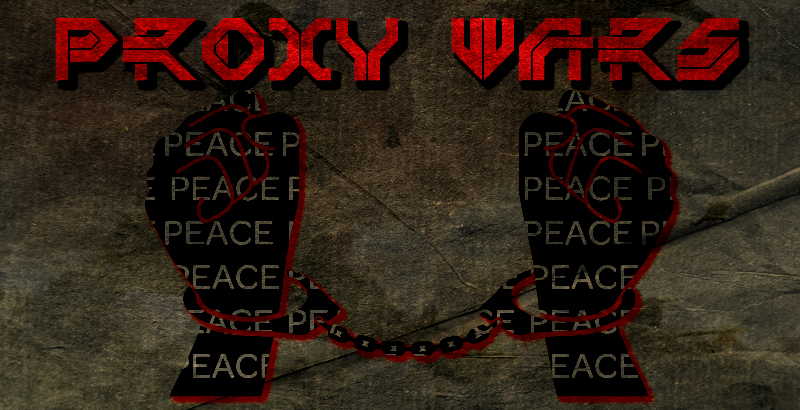
Originally appeared at Memoriabg, translated by Valentina Tzoneva exclusively for SouthFront
Part 2: Middle East War
(Part 1 of the monograph, ‘US Makes Wars With Foreign Hands – StratCom or Western Propaganda‘ see HERE [English version can be found HERE])
 Ivan Zapryanov is a military expert on defense and security. He graduated from the National Military University, ‘Vasil Levski’, Veliko Tarnovo, specialty ‘Military Intelligence’. He served in the Special Forces brigade. Between 2004 and 2005, he participated in the mission for post-war reconstruction of Iraq in the composition of the 4th Infantry Battalion, and in 2010, in the ISAF mission in the composition of the 18thBulgarian contingent in Afghanistan. He graduated from the Command and Staff College of the University of the Marine Corps, Quantico, USA. In 2014, he graduated in ‘Analysis of Defense’ at the Naval Postgraduate School in Monterey, USA. He has completed a ‘Selection and Training of Operators of the Special Forces’ and ‘Civil Activities’ courses at Fort Bragg, North Carolina, USA. He graduated from the Spiritual Seminary ‘St. St. Cyril and Methodius’ in Plovdiv.
Ivan Zapryanov is a military expert on defense and security. He graduated from the National Military University, ‘Vasil Levski’, Veliko Tarnovo, specialty ‘Military Intelligence’. He served in the Special Forces brigade. Between 2004 and 2005, he participated in the mission for post-war reconstruction of Iraq in the composition of the 4th Infantry Battalion, and in 2010, in the ISAF mission in the composition of the 18thBulgarian contingent in Afghanistan. He graduated from the Command and Staff College of the University of the Marine Corps, Quantico, USA. In 2014, he graduated in ‘Analysis of Defense’ at the Naval Postgraduate School in Monterey, USA. He has completed a ‘Selection and Training of Operators of the Special Forces’ and ‘Civil Activities’ courses at Fort Bragg, North Carolina, USA. He graduated from the Spiritual Seminary ‘St. St. Cyril and Methodius’ in Plovdiv.
“I feel like asking those who created this situation: “Do you realize what you have created?” but I fear that this question will hang in the air as you never gave up the policy based on confidence, belief in your exceptionalism and impunity. The power vacuum that emerged in several countries in the Middle East and North Africa led to the formation of zones of anarchy, which immediately began to fill in with extremists and terrorists … Initially, they are armed and trained, and then they go to the side of the so-called ‘Islamic State’. And the very ‘Islamic State’ did not come from nothingness: initially, it was also nurtured as a weapon against inconvenient secular regimes … In such situation, it is hypocritical and irresponsible to go out with loud statements about the threat of international terrorism and at the same time to close eyes to the channels of financing and the support to terrorists, including the drug business, the illegal trade of oil and weapons or trying to manipulate extremist groups to employ them in service to achieve their own political goals, hoping that after this, somehow an understanding with them will be found or put itmore simply: they will be liquidated.” – excerpt from the speech of the President of the Russian Federation, Vladimir Putin, on the occasion of 70th anniversary session of the UN General Assembly in 2015.
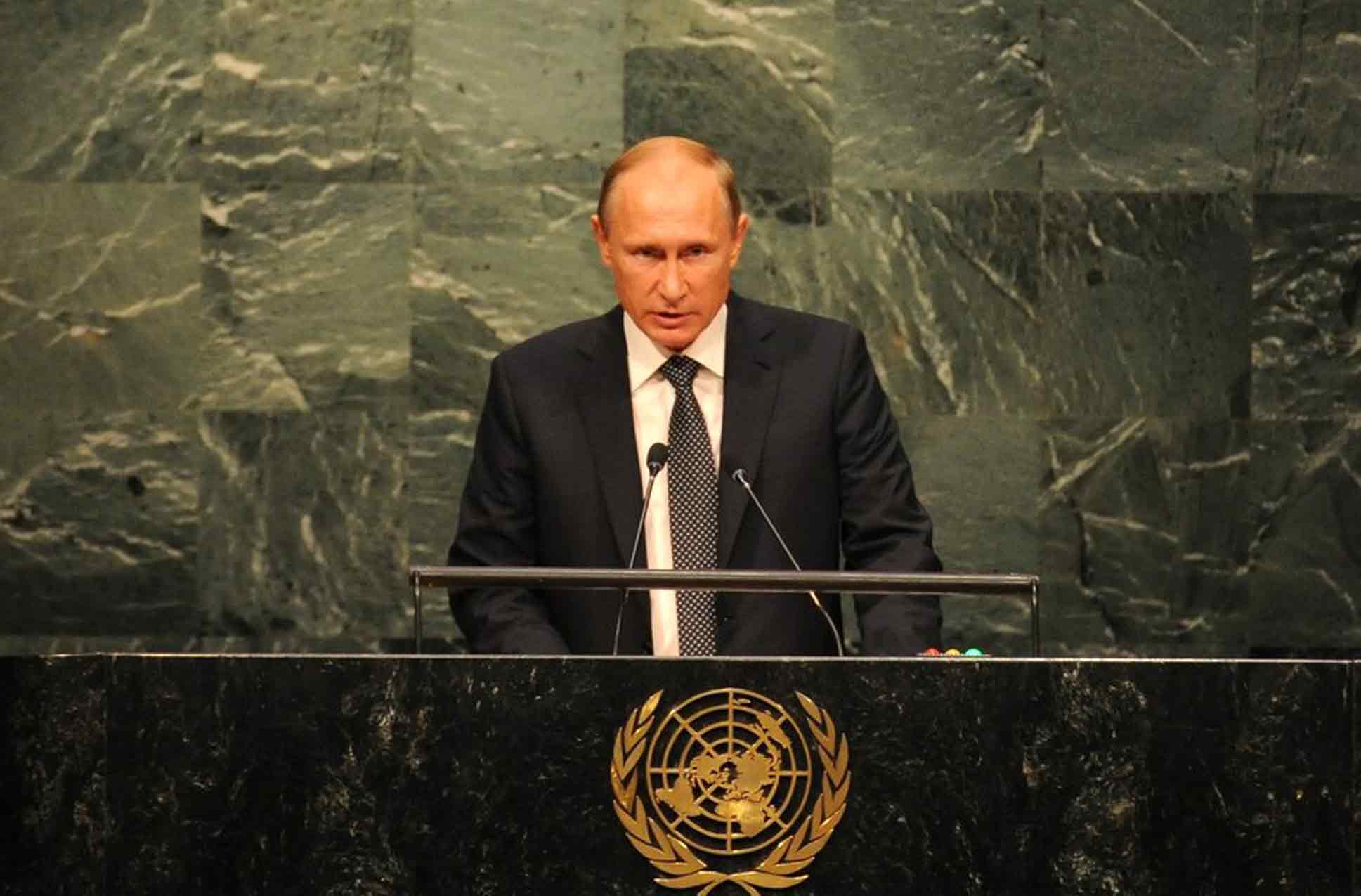
Once we identified the pillars of the so-called strategic communication (StratCom) of the West against Russia in Part 1 [Part 1 in English], namely:
- war with Georgia
- military operation in Syria
- intervention in Ukraine (Crimea, Donbass)
given the current geopolitical situation, Part 2 will be dedicated entirely to the Middle East: I will pay attention to events outlining the dynamics in the region, and the last few interventions of the West – in Iraq and in Libya – prior to but underlying the conflict in Syria and the crisis in the relations between Russia and the West. I will also prove that the support of the regime by Russia and the subsequent military operation of the Military Space Forces are entirely dictated by immediate threats to the national security of the Russian Federation: threats that the West deliberately created, of course, with the help of foreign hands.
2016 marks the anniversary of an event, which has a long-lasting effect on defining the geopolitics of today, particularly in the Middle East and any armed conflict in the region since then. Exactly a century ago, Britain and France, represented by their diplomats, Mark Sykes and Francois Georges-Pico, developed and concluded a secret agreement on post-war division of zones of influence in the territories of the fading Ottoman Empire in the Middle East, known as The Sykes-Picot Agreement.
Once drafted by the diplomats of London and Paris, a consultation with the Russian Empire has taken place, which then made concessions and agreed with the document. Russia is expected to strengthen activity on the Eastern Front, respectively weakening the forces of the Triple Alliance on the Western Front. Italy also brought their claims to the Agreement.
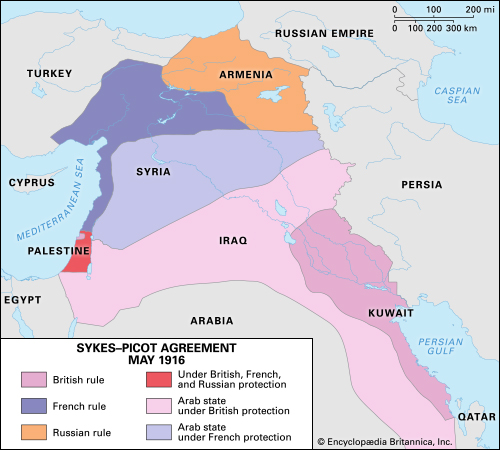
The territorial gains of the countries are determined by their extremely different motives.
– For the Russian Empire:
The Allies agree that Russia gains control of Constantinople and the straits and the western part of the historic Armenia (the provinces of Erzurum, Trabzon, Van and Bitlis, where mainly Armenians live) and part of the Kurdish areas to the south-east. The goals of Russia have strategic character: ensuring the safety of the Empire.
Russia and the Ottoman Empire led 12 wars starting in 1568. During the XVIII and XIX century, behind these wars stand interests and actions of France and/or UK (eg. wars of 1768-1774 and 1853-1856).
Before the start of the Eastern (Crimean) war, Paris and London contribute to the exacerbation of the conflict between the Ottoman Empire and Russia, with the ultimate goal of secession of Crimea and the Caucasus from the composition of the Russian Empire. During the war, ships of the British Empire and France entered through the Straits, besieged and destroyed Sevastopol, which fell on September 9, 1855.
This is why Russia seeks to control the Straits, ensuring free and safe access to the Mediterranean and controlled access to countries that are not in the Black Sea region. And by the inclusion of Armenia and part of the Kurdish territories, Russia would protect its southern flank, especially Caucasus.
Russia has no claims to the Arab territories. While the spheres of influence and control of France and Great Britain are covered by the Agreement, those of Russia are not reflected in the content of the document.
– For France and Britain:
France should acquire the Lebanese and Syrian coast, Adana, Cilicia, and the interior of the country, including Antep (today Gaziantep), Urfa (today Şanlıurfa), Mardin, Diyarbakar and Mosul.
Britain should acquire southern Mesopotamia, including Baghdad, the Mediterranean ports of Haifa and Acre.
Although there are numerous of the checks of British and French territories should build a confederation of Arab States or an independent Arab state, divided into French and British spheres of influence was supposed to be built on the territories under the control of the French and the Brithish.
Iskenderun should be a free port and Palestine, due to the holy places, under international control.
 The aims of the two forces are locked in control of the oil-rich land. France and Britain repeatedly used their ally, the Ottoman Empire (by fighting together or arming and/or paying the Sultan – by proxy) in opposition against Russia. The plans of Britain and France for plundering the lands of the Ottoman Empire, until recently a political and military ally against Russia, are a clear illustration of the words of the English statesman, twice prime minister, Henry John Temple, who ruled in his speech in the House of Commons (March 1, 1848): “We have no eternal allies and no permanent enemies. Our interests are eternal and perpetual, and those interests are our obligations which we should follow”; (Almost a century and a half later, the former US secretary of state, Henry Kissinger said in the ’80s: “America has no permanent friends or enemies, only interests.”).
The aims of the two forces are locked in control of the oil-rich land. France and Britain repeatedly used their ally, the Ottoman Empire (by fighting together or arming and/or paying the Sultan – by proxy) in opposition against Russia. The plans of Britain and France for plundering the lands of the Ottoman Empire, until recently a political and military ally against Russia, are a clear illustration of the words of the English statesman, twice prime minister, Henry John Temple, who ruled in his speech in the House of Commons (March 1, 1848): “We have no eternal allies and no permanent enemies. Our interests are eternal and perpetual, and those interests are our obligations which we should follow”; (Almost a century and a half later, the former US secretary of state, Henry Kissinger said in the ’80s: “America has no permanent friends or enemies, only interests.”).
– For Italy:
The country aims to increase its areas of control and influence. At the insistence of the United Kingdom, however, the inclusion of Italy in the agreement had to be ratified by Russia. The Russian side is an insignificant participant in the agreement and changing the status quo of the Russian Empire as a result of the revolution of 1917 and the withdrawal of the Russian Republic from the war led to its exclusion from the agreement. The agreement was revealed by the Bolsheviks, and on November 23, 1917, the media in the newly-created Russian Republic: Izvestia and Pravda published the secret contract. Then, “the British were embarrassed, the Arabs amazed and the Turks impressed.”
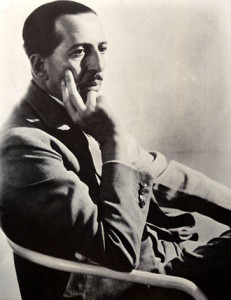 According to The Economist, Sykes-Pico is “the embodiment of imperial betrayal.” The edition brings thoughts of George Habib Antonius, a Lebanese-Egyptian writer, diplomat and one of the first historians of Arab nationalism, who called Sykes-Pico agreement a shocking document, a product of “greed, combined with suspicions altogether leading to stupidity.”
According to The Economist, Sykes-Pico is “the embodiment of imperial betrayal.” The edition brings thoughts of George Habib Antonius, a Lebanese-Egyptian writer, diplomat and one of the first historians of Arab nationalism, who called Sykes-Pico agreement a shocking document, a product of “greed, combined with suspicions altogether leading to stupidity.”
“That was actually one of the three separate and incompatible wartime promises that the UK makes to France, the Arabs and the Jews. The resulting contradictions are at the root of all troubles since then,” the magazine said.
The Britons are compromised, as the secret agreement, contrary to their 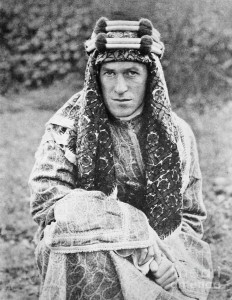 promises to the Arabs made by British officer (scout), archaeologist and diplomat, Thomas Lawrence (Thomas Edward Lawrence), for establishing a national Arab state on the territory of Greater Syria in exchange for supporting the Allies in the war.
promises to the Arabs made by British officer (scout), archaeologist and diplomat, Thomas Lawrence (Thomas Edward Lawrence), for establishing a national Arab state on the territory of Greater Syria in exchange for supporting the Allies in the war.
The Arab countries are involved in World War I as a colony. Their participation is both in the labor corps and in actual combat operations. Only the Egyptians, killed in operations, numbered 80,000.
After all, borders of countries are drawn, set to be created on geopolitical interests of Britain and France, contrary to the natural terrain and attitudes of Indigenous Peoples, who after four centuries of Ottoman control, are against European one. Therefore, the aim of France is weakening the Arab nationalism, which is scheduled to occur by fracturing Syria into multiple parts, “blocking nationalist feelings and actions.” As for the management, behind the “local face” of a government, the real ruler of Syria must be France, which “continues to pursue a policy of ‘divide and rule’, dividing the territory on regional and ethnic lines in the remaining parts of Syria.”
Instead of a Great Hashemite Kingdom with capital Damascus, several small countries were created. For Christian-Maronites, it is Lebanon but they are not able to retain control over the country. The Kurds do not receive the requested-by-them country and are divided between four countries (Turkey, Iraq, Iran and Syria of today). The Hashemites, who led the Arab uprisings and fought with the British against the Ottoman Empire, were expelled from Syria by the French. Furthermore, the Hashemites were forced to abandon their ancestral for almost 10 centuries possessions in the Hijaz (historic places where Islam emerged and are sacred for Muslims: the cities of Mecca and Medina, which is an independent state for the period from 1916 to 1925) in favor of backed by the British Empire, Abdul-Aziz Al Saud, the head of the clan of Nadj (the birthplace of Wahhabism, which emerged in the XVIII century). Together with the Wahhabis, al-Saud founds Saudi Arabia and its first King (1932-1953). From the historic district of Palestine, the Brits broke off a piece and created Jordan. The Jews also received land where in 1948 Israel arose.
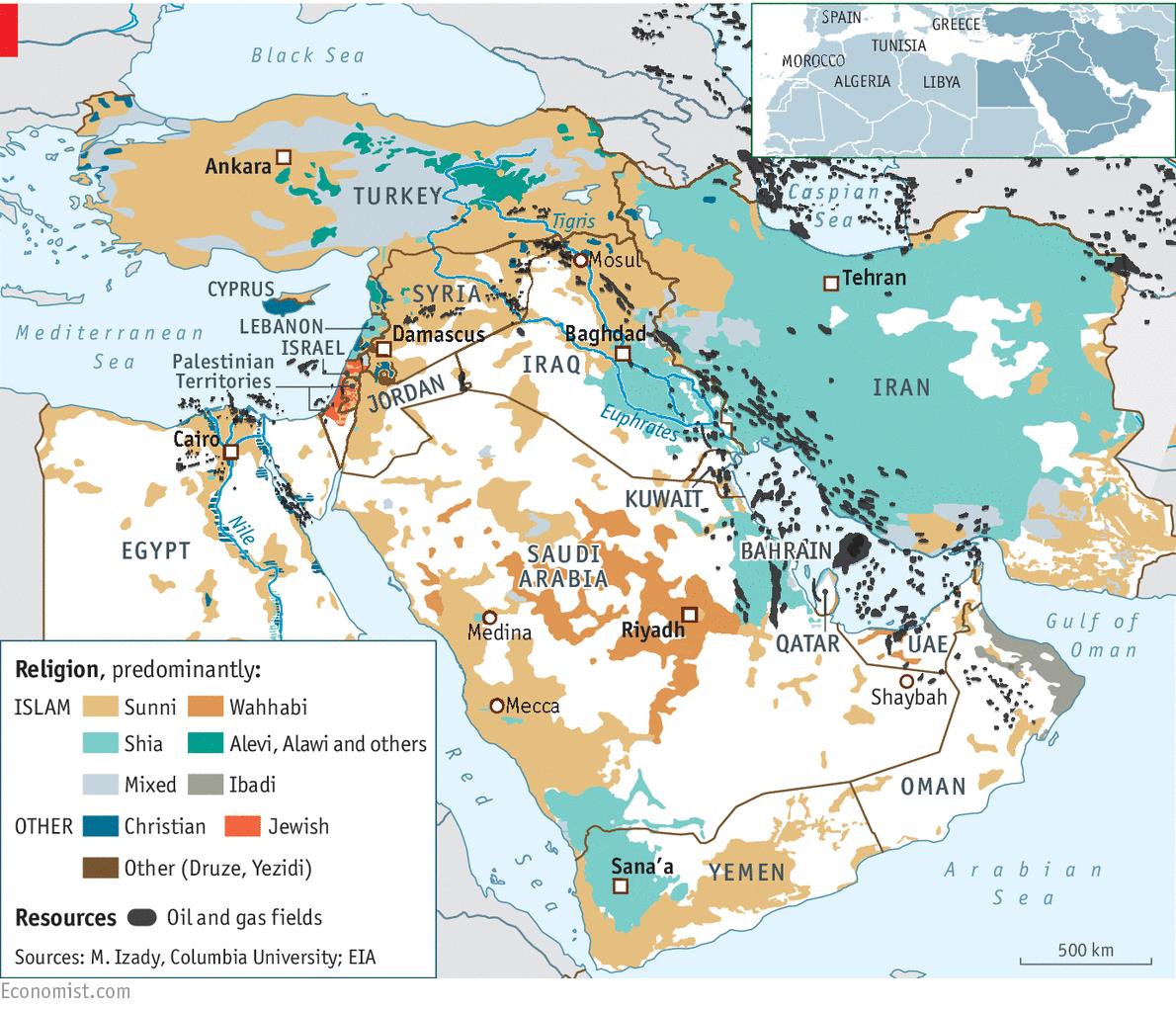
This is how the division of Syria, Iraq, Lebanon and Palestine into numerous French and British administrative zones of influence and control were created. Eventually, after World War I, the main beneficiary of the agreement is England.
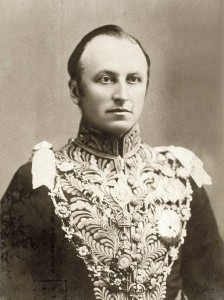 After the end of WWI, George Curzon (George Nathaniel Curzon), Minister of Foreign Affairs of Great Britain from 1919 to 1924, is convinced that “the Arab facade, ruled and administered under British guidance and controlled by local Muslims and, as far as possible from Arab administration … there should be no actual incorporation of the conquered territory in the dominions of the conqueror but the absorption may be disguised by such constitutional fictions as a protectorate, a sphere of influence, a buffer state and so on.”
After the end of WWI, George Curzon (George Nathaniel Curzon), Minister of Foreign Affairs of Great Britain from 1919 to 1924, is convinced that “the Arab facade, ruled and administered under British guidance and controlled by local Muslims and, as far as possible from Arab administration … there should be no actual incorporation of the conquered territory in the dominions of the conqueror but the absorption may be disguised by such constitutional fictions as a protectorate, a sphere of influence, a buffer state and so on.”
According to David Lloyd George, Prime Minister of the United Kingdom in the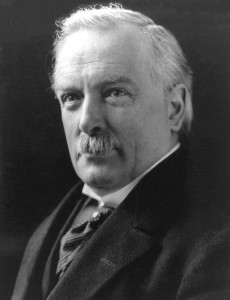 period December 1916 – October 1922, a secret agreement between France and Britain is not sufficient to ensure a lasting preservation of the position of the Western powers. That is why in the Charter of the League of Nations an office system was established under the pretext that “the peoples of these countries are unable to manage themselves in the particularly difficult conditions of the modern world.”
period December 1916 – October 1922, a secret agreement between France and Britain is not sufficient to ensure a lasting preservation of the position of the Western powers. That is why in the Charter of the League of Nations an office system was established under the pretext that “the peoples of these countries are unable to manage themselves in the particularly difficult conditions of the modern world.”
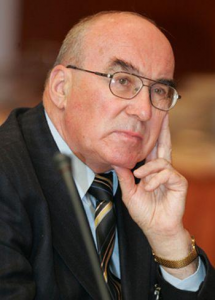 In the words of Benjamin Popov, director of the Center for Partnership of Civilizations to the Institute of International Studies in Russia, “one hundred years later, the Western bloc continues to talk about the failure of Arab nations to manage their land and insist on the missionary task of teaching them real democracy.”
In the words of Benjamin Popov, director of the Center for Partnership of Civilizations to the Institute of International Studies in Russia, “one hundred years later, the Western bloc continues to talk about the failure of Arab nations to manage their land and insist on the missionary task of teaching them real democracy.”
As in the early XX century and in the XXI century, the West continues with “attempts to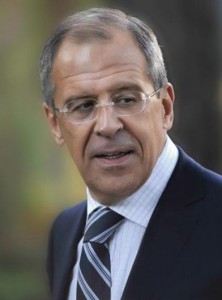 interfere in the internal affairs of sovereign states, to impose recipes from the outside, to promote the concept of regime change. Before, this happened under the slogan of “humanitarian intervention” and now, they are trying to do it under the slogan of combating violence and extremism. Only the people of the countries in the region, as well as any other country in the world, have the right to determine their own destiny. This is the immutable principle of international law and it has to be followed religiously,” the Minister of Foreign Affairs of the Russian Federation, Sergey Lavrov said.
interfere in the internal affairs of sovereign states, to impose recipes from the outside, to promote the concept of regime change. Before, this happened under the slogan of “humanitarian intervention” and now, they are trying to do it under the slogan of combating violence and extremism. Only the people of the countries in the region, as well as any other country in the world, have the right to determine their own destiny. This is the immutable principle of international law and it has to be followed religiously,” the Minister of Foreign Affairs of the Russian Federation, Sergey Lavrov said.
In the Sykes-Pico Agreement, Britain and France deliberately did not incorporate the concept of state but only a territory whose borders are subject to change depending on the interests of the colonizers. The West intentionally impedes the formation of civil society and recognized national self-identity in the states under its control, preserving the separation of people based on tribal and sectarian affiliations. Thus, the external forces easily impose their will and achieve their goals, removing a regime if it demonstrates autonomy and disobedience to the metropolis. To fight against a regime is far cheaper than to fight against a cohesive nation. That is what we see today in the Middle East (and not only there).
 “Many countries have strange borders,” Rami Khouri from the American Institute in Beirut says. “Yet, for the Arabs, the Sykes-Pico Agreement is a symbol of a much deeper discontent against the colonial tradition. We are talking about a century during which the Western powers have played with us and intervened with military force.”
“Many countries have strange borders,” Rami Khouri from the American Institute in Beirut says. “Yet, for the Arabs, the Sykes-Pico Agreement is a symbol of a much deeper discontent against the colonial tradition. We are talking about a century during which the Western powers have played with us and intervened with military force.”
Even today, the fight for dominance, influence and control over the territories in the Middle East and North Africa have not ceased. Since then, the Arabs are permanently separated, confronted, cheated and robbed by the West; they have turned into an instrument for waging wars and their rich oil lands into a source of finance and control through military bases.
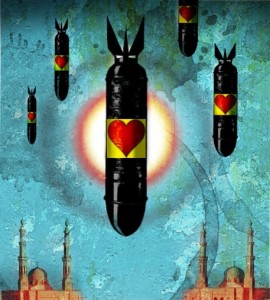 But let’s go back to our time, during the Arab Spring, the West, Saudi Arabia, the United Arab Emirates, Qatar and Turkey entered into an alliance with Islamic radicals with a common goal: to overthrow secular regimes in Libya and Syria. The President of Russia warns the West about the negative consequences, but instead of understanding, Moscow, which is against the “democratic opposition” as the West calls the jihadists, is accused of obstructing “democratizing change” in the Middle East.
But let’s go back to our time, during the Arab Spring, the West, Saudi Arabia, the United Arab Emirates, Qatar and Turkey entered into an alliance with Islamic radicals with a common goal: to overthrow secular regimes in Libya and Syria. The President of Russia warns the West about the negative consequences, but instead of understanding, Moscow, which is against the “democratic opposition” as the West calls the jihadists, is accused of obstructing “democratizing change” in the Middle East.
American researcher on Russia and Russian-American relations, professor Stephen 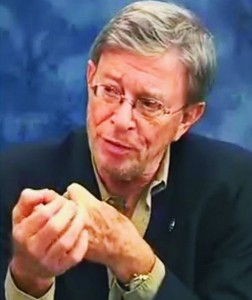 Cohen said: “Russia has repeatedly warned the United States that radical forces are on the rise after military coups in the Middle East, but Washington still refuses to listen … What worries me is the inability of Washington to rethink everything, partly because rethinking can bring them the recognition of the position taken by Moscow and Putin. It seems that the premise is: Moscow and Putin can never be right,” Steven Cohen says.
Cohen said: “Russia has repeatedly warned the United States that radical forces are on the rise after military coups in the Middle East, but Washington still refuses to listen … What worries me is the inability of Washington to rethink everything, partly because rethinking can bring them the recognition of the position taken by Moscow and Putin. It seems that the premise is: Moscow and Putin can never be right,” Steven Cohen says.
When in 2012, during the annual press conference, a journalist from Associated Press asked whether Russia will turn out to be in isolation due to the disagreement with the West on Syria, losing positions not only in Syria but also in the Middle East, Putin replied: “Did Russia not lose its position in Libya after what the interventionists did there? Regarless of how they explain their position, the state is falling apart. Ethnic, clan, tribal conflicts continue … You ask me about an error, but is that not an error? Do you want to constantly repeat these mistakes in other countries? We are not concerned about the fate of the Assad regime … Certainly, change is required. We have another concern: what will happen next.”
In fact, what is happening today in Syria can be viewed as one of the episodes in the planned destabilization of many unfriendly-to-the-West Middle East countries, by removing their regimes. That is why before we focus on Russia’s military intervention in Syria, we shall focus on the developments in the region after 9/11 because the conflict in Syria can not, and should not be studied in isolation, but only in the context of the geopolitical dynamics.
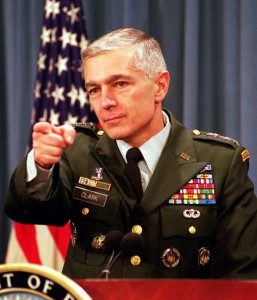 On 3 October 2007, invited by the Commonwealth Club of California (San Francisco, CA), the former commander of NATO forces in Europe (1997-2000), two-time participant in the race for the nomination for president from the Democratic Party (the elections in 2004 and 2008) already retired, General Wesley Clark, holds a speech in which he criticized the US foreign policy during the administration of George Walker Bush.
On 3 October 2007, invited by the Commonwealth Club of California (San Francisco, CA), the former commander of NATO forces in Europe (1997-2000), two-time participant in the race for the nomination for president from the Democratic Party (the elections in 2004 and 2008) already retired, General Wesley Clark, holds a speech in which he criticized the US foreign policy during the administration of George Walker Bush.
Clark spoke of a plan, developed by the Bush administration after 9/11, according to which the US plans to invade 7 countries within five years. The general recalled the words of a former subordinate, also a general of the Pentagon, that 10 days after 9/11 he reported the decision on a war against Iraq. When Clark asks him if Saddam has been implicated with Al-Qaeda, the former employee replied: “I do not know, I guess they do not know what else to do.” When Clark asked if they had intelligence implicating Saddam of links to Al-Qaeda, the answer is the following: “no, no, there is nothing new in this direction. They have just decided to go to war against Iraq. I guess it seems that we do not know what to do with the terrorists, but we have good military and we can take down governments. I guess when the only tool you have is a hammer, every problem has to look like a nail.”
A few weeks later, Clark again met with his old subordinate, while the US was bombing Afghanistan. Clark asked whether plans for a war against Iraq were still valid and the Pentagon general showed him a piece of paper and told him: “This is a memo that describes how we will hit seven countries in five years, beginning with Iraq, then Syria, Lebanon, Libya, Somalia, Sudan and ending with Iran.”
The general said about the experience: “I could not believe it was true, but in fact, this is what happened.”
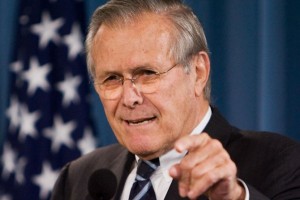 A few days later, on 30 September 2001, Donlad Rumsfeld (then Secretary of Defense), sent a document to Bush in which the administration calls not only to focus on killing Osama bin Laden, but also to create “new regimes” in many countries, “helping the local people get rid of the terrorists and get rid of the regimes that support terrorism.” Subsequently, it was Rumsfeld who developed the military plan with the aim of regime change in the Middle East.
A few days later, on 30 September 2001, Donlad Rumsfeld (then Secretary of Defense), sent a document to Bush in which the administration calls not only to focus on killing Osama bin Laden, but also to create “new regimes” in many countries, “helping the local people get rid of the terrorists and get rid of the regimes that support terrorism.” Subsequently, it was Rumsfeld who developed the military plan with the aim of regime change in the Middle East.
If the purpose of Washington is the destruction of regimes that support terrorism, then it remains inexplicable why exactly Iraq is attacked, and eight years later, Libya, whose leader actively fought against the sponsored-by-Saudi Arabia, Al-Qaeda.
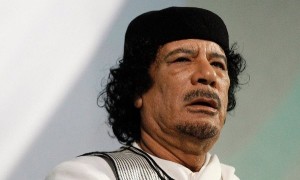 In this particular connection are the words of Muammar Gaddafi, who in his speech during the summit between Arab leaders, held in 2008 in Syria, stressed that all Arab leaders should expect the fate of Saddam Hussein: “Let our American friends answer you what was the reason to invade Iraq,” Gaddafi asked, “Is bin Laden Iraqi? Were those who attacked New York Iraqis? No, they were not. Were those who attacked the Pentagon Iraqis? They were not. Were there weapons of mass destruction in Iraq? There were not … Why was Saddam Hussein hanged? … Each one of you could be next.”
In this particular connection are the words of Muammar Gaddafi, who in his speech during the summit between Arab leaders, held in 2008 in Syria, stressed that all Arab leaders should expect the fate of Saddam Hussein: “Let our American friends answer you what was the reason to invade Iraq,” Gaddafi asked, “Is bin Laden Iraqi? Were those who attacked New York Iraqis? No, they were not. Were those who attacked the Pentagon Iraqis? They were not. Were there weapons of mass destruction in Iraq? There were not … Why was Saddam Hussein hanged? … Each one of you could be next.”
In an interview in March 2007, General Clark explained that when US troops leave Iraq, “the Saudis will have to find someone to fight against the Shiites. And who will they find? Al-Qaeda “that gets” high funding from the Saudis to keep their advantage inside Iraq and to block Iranian expansionism.” That is what happened in Iraq, Libya and Syria.
 Something extremely important followed which Wesley Clark mentions for the first time: “I remembered a meeting with Paul Wolfowitz in 1991. In 2001, he was the deputy secretary of defense, but in 1991, he was secretary of defense policies (under-secretary of defense for policy) – position number 3 in the Pentagon. And I went to see him when I was a brigadier general, commander of the National Training Center … I said: “Mr. Secretary, you must be pretty happy with the performance of the armed forces in Desert Storm.” And he said: “Yes, but not quite, because the truth is that we had to get rid of Saddam Hussein, and we did not do it … But one thing I learned [from the Persian Gulf war – author’s note] is that we can use our military in the region – the Middle East; the Russians will not stop us. We have about 5 or 10 years to clean up those old pro-Soviet regimes: Syria, Iran and Iraq before the next great superpower comes and challenges us.”
Something extremely important followed which Wesley Clark mentions for the first time: “I remembered a meeting with Paul Wolfowitz in 1991. In 2001, he was the deputy secretary of defense, but in 1991, he was secretary of defense policies (under-secretary of defense for policy) – position number 3 in the Pentagon. And I went to see him when I was a brigadier general, commander of the National Training Center … I said: “Mr. Secretary, you must be pretty happy with the performance of the armed forces in Desert Storm.” And he said: “Yes, but not quite, because the truth is that we had to get rid of Saddam Hussein, and we did not do it … But one thing I learned [from the Persian Gulf war – author’s note] is that we can use our military in the region – the Middle East; the Russians will not stop us. We have about 5 or 10 years to clean up those old pro-Soviet regimes: Syria, Iran and Iraq before the next great superpower comes and challenges us.”
That is what happened with Iraq, then Libya and Syria; two successful attempts to physically eliminate the secular leaders and the third is still ongoing. And it would have been completed long ago if Russia had not returned to the global arena. The Western elite literally manipulates and misinforms the world community, and in particular its citizens, spewing through the mainstream media huge flows of false information daily. The aim is brainwashing and instilling in the minds of the people the need for another military intervention under an absolutely false pretext of “protection, rights, democracy,” but actually removing the pro-Russian regimes at any cost: alliance with terrorists, terrorist acts, operations under foreign flags and wars with foreign hands. Because the West has not for a moment in its history ceased to be ruled by its Macciavelian principle that the end justifies the means. And the ultimate goal is Russia, but this will be discussed in a subsequent part, devoted to the Russian-Georgian war, the crisis in the Ukraine and the expansion of NATO.
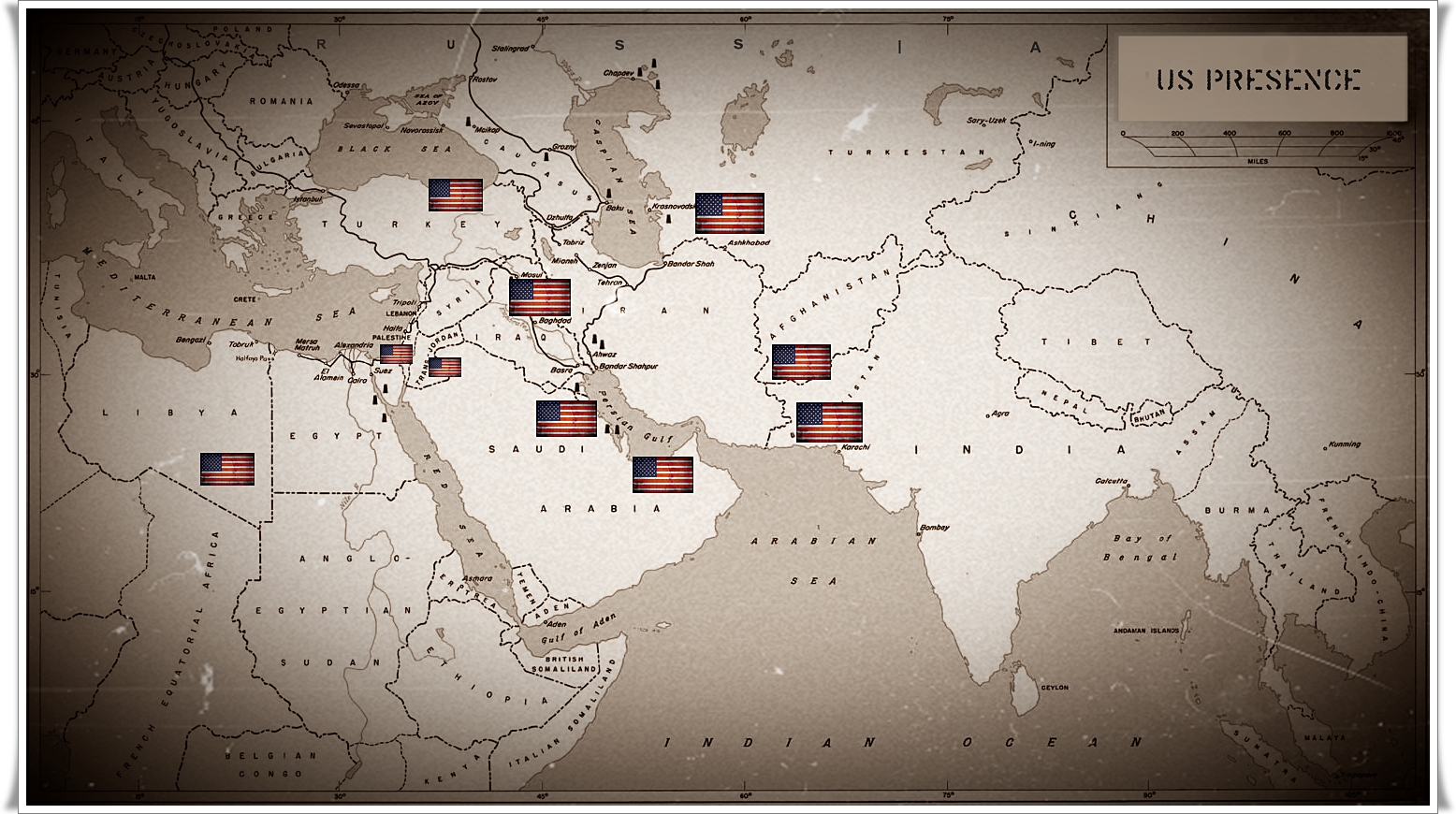
It just stunned me, Clark continues. So, the purpose of the military is to start wars and change governments, rather than to prevent conflicts … We will attack countries … In this country [USA – author’s note] a ‘coup’ was made in foreign policy by a group of people, Wolfowitz and Cheney and Rumsfeld, and you can add a dozen of collaborators of the project, ‘The New American Century’. They wanted us to destabilize the Middle East, to turn it upside down, be under our control … Did someone tell you that? Was there a national dialogue on this topic? Did the senators and congressmen stand up to announce this plan? Was there a debate in the US? Absolutely not! And still there is not … And the American people did not vote for George Bush for this reason … He promised in his campaign the most peaceful foreign policy and not the most arrogant foreign policy in American history. He promised no [operations – author’s note] and peacekeeping and nation-building. And that is exactly what happened to Iraq and Afghanistan.
 Back in March 2007, in an interview by Amy Goodman, except for the above, Wesley Clark also admits: “The truth about the Middle East is that if there was no oil it, would be like Africa. Nobody threatens Africa with an intervention … There is no doubt that the presence of oil in the region provoked the intervention of the great powers … There is always this perception that somehow we can intervene and use force in the region. I mean, it’s true … imagine, we armed and created the mujahideens to expel the Soviets from Afghanistan … And, you know, my lesson since then is that when you use force, there are unexpected consequences, so you have to use force as a last resort. No matter whether openly or concealed, you pay high for the use of force.”
Back in March 2007, in an interview by Amy Goodman, except for the above, Wesley Clark also admits: “The truth about the Middle East is that if there was no oil it, would be like Africa. Nobody threatens Africa with an intervention … There is no doubt that the presence of oil in the region provoked the intervention of the great powers … There is always this perception that somehow we can intervene and use force in the region. I mean, it’s true … imagine, we armed and created the mujahideens to expel the Soviets from Afghanistan … And, you know, my lesson since then is that when you use force, there are unexpected consequences, so you have to use force as a last resort. No matter whether openly or concealed, you pay high for the use of force.”
Not long ago, one of the biggest manipulations of our times was officially revealed: the groundless allegations for the existence of weapons of mass destruction and links between Iraq and Al-Qaeda, which the US and UK made against Saddam Hussein’s regime and used as a casus belli for a disproportionate armed aggression against a sovereign nation in violation of international law and in violation of the UN Charter. As a result of the war of 2003 so far, according to Iraq Body Count, the victims among the civilian population have amounted to more than 185,000. According to Al Jazeera, the victims are between 150,000-300,000. The famous British polling agency, ORB International, estimated in 2007 that victims of the war are 1.2 million Iraqis. According to Just Foreign Policy, however, the victims are about 1.5 million people. The expansion of Islamic terrorism is a direct result of this criminal war. The war after 9/11, which is against terrorism by suggestion but in practice contributes to its propagation, is a mistake: “I think it’s a mistake … a bad strategy. I think it brought us a lot of grief and will bring us more grief. I think it was a great diversion from the war on terrorism, diversion of resources, and that made our enemies stronger,” Wesley Clarc recognizes on Iraq.
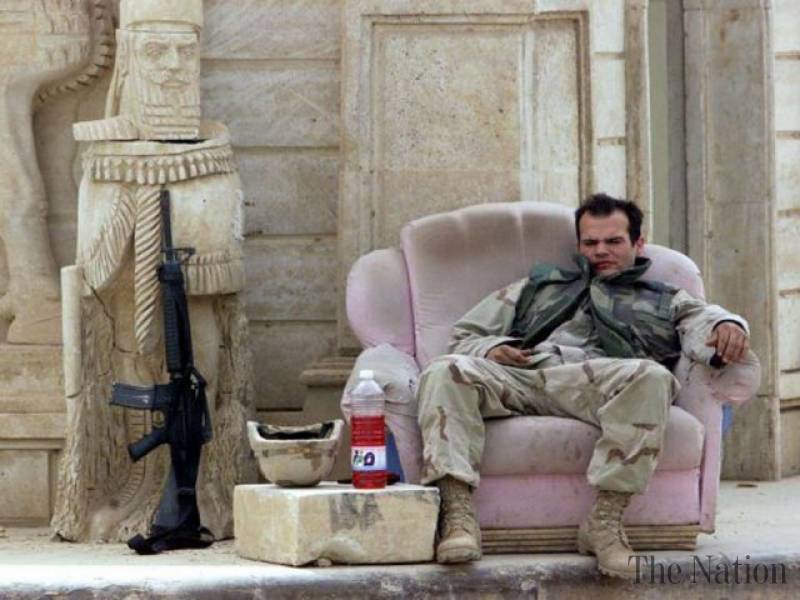
Instead of a war against terrorism, after the collapse of Iraq, the deliberate burning of the countries of the Middle East and North Africa followed, which, in turn, led to the destruction of the flourishing and oil-rich Libya, the bloodiest war in Syria, the emergence of Daesh or ‘Islamic State’ (IS), the huge refugee wave towards Europe, dozens of terrorist attacks in Europe.
In 2003, in the destruction of Iraq apart from the United States and Britain, Australia and Poland also participate. Today, these countries are among the fiercest accusers of Russia, ascribing blame for those negative consequences for which they are responsible. Under international law, the governments of the above countries that decided on the war, should be subject to a modern version of the Nuremberg trials. At that time, the presidents of France and Russia, Jacques Chirac and Vladimir Putin, and the German Chancellor, Gerhard Schroeder, warned George Bush about the negative consequences of a war against a sovereign state. The reason for the war was based on questionable intelligence that subsequently proved to be falsified.
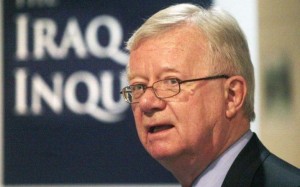 On 6 July 2016, after more than seven years of continued investigation, Sir John Chilkot, a privy counselor and former civil servant, appointed in 2009 by then Prime Minister, Gordon Brown, for presiding over an investigation into the circumstances surrounding the invasion of Iraq in 2003 and its consequences, published a report.
On 6 July 2016, after more than seven years of continued investigation, Sir John Chilkot, a privy counselor and former civil servant, appointed in 2009 by then Prime Minister, Gordon Brown, for presiding over an investigation into the circumstances surrounding the invasion of Iraq in 2003 and its consequences, published a report.
Despite the apparent leniency in the report to Tony Belar, it becomes clear that “intelligence on weapons of mass destruction is almost completely wrong and much of it is pure fiction … Blair has been warned, including by senior members of my own staff that much of the intelligence was outdated, superficial and dubious and that does not support the claim that Saddam was an imminent threat. His guilt [Blair’s – author’s note] lies in using his persuasiveness to present [in parliament – author’s note] false intelligence as irrefutable proof that Saddam is a real, present and growing danger when he was not.”
On the same day when the report was published, Sir John Chilkot makes an application outlined in 12 pages, the highlights of which follow:
“Our conclusion is that Britain has chosen to participate in the invasion of Iraq before the peaceful options for disarmament have been exhausted. The military actions at that time were not a last resort.”
“Estimation of the seriousness of the threat of Iraqi weapons of mass destruction (WMD) were presented with unjustified confidence.”
“Despite explicit warnings, the consequences of the invasion have been underestimated. Planning and preparation for Iraq after the removal of Saddam Hussein were totally inadequate.”
According to the report, “the investigation did not comment on whether the military action is legal. This can, of course, be decided only by a properly constituted and internationally recognized court. We concluded, however, that the conditions under which it was decided that the United Kingdom had a legal basis to take part in the hostilities were far from satisfactory.”
“The Joint Intelligence Committee had to explain to Mr. Blair that analyzed intelligence has not been established ‘beyond doubt’, nor that Iraq has continued to produce chemical and biological weapons, nor that efforts to develop nuclear weapons continued.”
“It is now clear that the policy on Iraq was built on faulty intelligence and assessments.”
“The invasion and the subsequent instability in Iraq up to July 2009 led to the deaths of at least a hundred and fifty thousand Iraqis, probably many more, most of them civilians. More than one million people have been displaced. The Iraqi people have suffered enormously.”
And finally, “to March 2003, there was no imminent threat from Saddam Hussein.”
 Asked whether invading Iraq was a mistake, Blair said: “I believe that we took the right decision and the world is better and safer.” The former prime minister allegedly acted based on intelligence at the time according to which the Iraqi president had weapons of mass destruction (WMD).
Asked whether invading Iraq was a mistake, Blair said: “I believe that we took the right decision and the world is better and safer.” The former prime minister allegedly acted based on intelligence at the time according to which the Iraqi president had weapons of mass destruction (WMD).
Blair lied; there is no intelligence that strongly argues for the presence of WMD. If such existed, it would have been presented long ago in defense of aggression committed by the US, Britain, Australia and Poland. And somehow, spontaneously, the rhetorical question comes to me: what kind of a cynical, arrogant and brash individual one must be, to argue that today “the world is better and safer” on the background of torn-by-war-and-terrorism, once stable Iraq, on the background of a destroyed Libya, prosperous until recently, on the background of soaked-in-blood, once secular and developed Syria?!
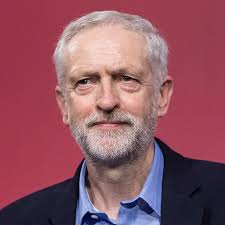 Unlike Blair, the Labour Party leader Jeremy Corbyn presents an apology on behalf of his party for the “disastrous decision to go to war,” calling the war the most serious disaster of British foreign policy for the past 60 years.
Unlike Blair, the Labour Party leader Jeremy Corbyn presents an apology on behalf of his party for the “disastrous decision to go to war,” calling the war the most serious disaster of British foreign policy for the past 60 years.
Immediately after the publication of the ‘Chilkot’ report, the justification by George Bush for his decision to invade Iraq followed. Bush’s spokesman said: “Despite the failures of intelligence and other mistakes that he [Bush – author’s note] admitted earlier, President Bush continues to believe that the whole world is a better place without Saddam Hussein in power.”
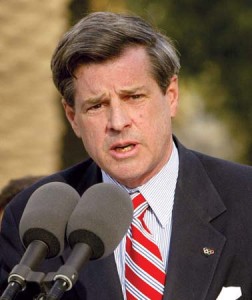 Paul Bremer, American diplomat and head of the US occupation administration in Iraq for 2003-2004 (the one who released the 400-strong Iraqi army whose soldiers subsequently became the backbone of many terrorist organizations, including today’s IS) is in agreement with the ‘Chilkot’ report, under which the US and Britain have drawn up “inadequate” plans with regard to the occupation of Iraq and blames George Bush and Tony Blair for ignoring internal warnings.
Paul Bremer, American diplomat and head of the US occupation administration in Iraq for 2003-2004 (the one who released the 400-strong Iraqi army whose soldiers subsequently became the backbone of many terrorist organizations, including today’s IS) is in agreement with the ‘Chilkot’ report, under which the US and Britain have drawn up “inadequate” plans with regard to the occupation of Iraq and blames George Bush and Tony Blair for ignoring internal warnings.
Back in 2011, Lawrence Wilkerson, a colonel and former chief of staff to US  Secretary of State, Colin Powell, said that intelligence on Iraq was false. Colin Powell himself was not informed either by CIA Director, George Tenet, nor by analysts of the agency that there were dispute about the reliability of the source of the intelligence and the reliability of the intelligence. According to Colonel Wilkerson, Tenet was asked whether he is ready to confirm to the Secretary of State that he has enough sources to “establish each of these facts” as Tenet is “the most convincing” about “mobile biological laboratories, existing stocks of chemical weapons and worst of all, an active nuclear program.”
Secretary of State, Colin Powell, said that intelligence on Iraq was false. Colin Powell himself was not informed either by CIA Director, George Tenet, nor by analysts of the agency that there were dispute about the reliability of the source of the intelligence and the reliability of the intelligence. According to Colonel Wilkerson, Tenet was asked whether he is ready to confirm to the Secretary of State that he has enough sources to “establish each of these facts” as Tenet is “the most convincing” about “mobile biological laboratories, existing stocks of chemical weapons and worst of all, an active nuclear program.”
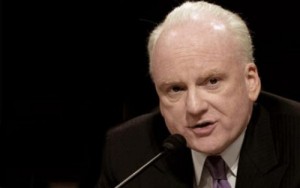 Wilkerson is adamant that “Dick Cheney should be in prison for war crimes.” In 2014, the same opinion was expressed by former adviser to the administration of the President (Bill Clinton and George Bush) of the US and specialist in counterterrorism, Richard Clarke, called the ‘Counter-terrorism tzar’: “it is clear that the things that the Bush administration has done … were war crimes.”
Wilkerson is adamant that “Dick Cheney should be in prison for war crimes.” In 2014, the same opinion was expressed by former adviser to the administration of the President (Bill Clinton and George Bush) of the US and specialist in counterterrorism, Richard Clarke, called the ‘Counter-terrorism tzar’: “it is clear that the things that the Bush administration has done … were war crimes.”
 In February 2006, a professor of international law at University College of London, Philippe Sands, revealed in the British press a note of the two-hour meeting between George Bush and Tony Blair at the White House on January 31, 2003 (for Bush-Blair’s MEMO). This is the latest in a series of notes between the two statesmen, the first of which is the so-called ‘Downing Street memo’ dated July 23, 2002 (eight months before the invasion of March 20, 2003) and became famous as the ‘Smoking gun MEMO’, followed by the Bush-Aznar memo of a meeting between Bush and Prime Minister of Spain, Jose Maria Aznar, in February 2002 (published 2007).
In February 2006, a professor of international law at University College of London, Philippe Sands, revealed in the British press a note of the two-hour meeting between George Bush and Tony Blair at the White House on January 31, 2003 (for Bush-Blair’s MEMO). This is the latest in a series of notes between the two statesmen, the first of which is the so-called ‘Downing Street memo’ dated July 23, 2002 (eight months before the invasion of March 20, 2003) and became famous as the ‘Smoking gun MEMO’, followed by the Bush-Aznar memo of a meeting between Bush and Prime Minister of Spain, Jose Maria Aznar, in February 2002 (published 2007).
From the published in 2006 memorandum, it is clear that the decision of President Bush to invade Iraq, was made regardless of whether there will be a second UN resolution, and whether UN inspectors will find evidence of weapons of mass destruction (WMD). The first resolution (1441) warns Iraq of “serious consequences as a result of continued violations of its obligations,” in case Iraq did not disarm and cooperate with UN weapons inspectors. The resolution does not mandate or authorize military action against Iraq. It was accepted “unconditionally” by the Iraqi government, as evidenced by a letter, signed by Foreign Minister, Naji Sabri, and presented to the Security Council by the Ambassador of Iraq to the United Nations, Mohammed Aldura.
In the memo, Bush and Blair admit that at that moment, unconventional weapons were not found in Iraq. To avoid failing the invasion, President Bush mentioned three possibilities for provoking confrontation:
- The first option consists of “fly over Iraq on reconnaissance U-2 plane, concealed by fighter jets painted in the colors of the United Nations … If Saddam fired at them, he would be in breach.” It’s about conducting an operation under a foreign flag (false flag operation), which is a crime under international law.
- The second option: if the “United States succeed to find a “deserter” who could deliver a public presentation on Saddam’s WMD.”
- The third option mentioned in the memo is the murder of Saddam Hussein.
 On the issue of ‘deserter’, I will allow myself to remind of a classic example of disinformation, forgery and propaganda: the so-called evidence of Nayirah (The Nayirah testimony); indications which on October 10, 1990, 15-year-old Kuwaiti girl named Nayirah Al-Sabah, gives to US Congress (the Congressional Human Rights caucus). Emotional and with tears in her eyes, she said that while working in a Kuwaiti hospital, she saw “how armed Iraqi soldiers rushed to the hospital and threw newborns out from incubators and left them to die of cold floor.” The testimony of the girl has repeatedly been cited by senators and by then, US President, George Herbert Walker Bush, manged in this way to change public opinion and to provide increased support for a military intervention against Iraq. In 1992, it became clear that the girl is the daughter of the Kuwaiti ambassador to the United States, Saud Al-Sabah, and the ‘testimony’ has been invented by an American PR agency, Hill & Knowlton, hired by the Kuwaiti government. At the beginning, Amnesty International confirmed the story of the girl, but later accused the Bush administration of “opportunistic manipulation of the international movement for human rights.”
On the issue of ‘deserter’, I will allow myself to remind of a classic example of disinformation, forgery and propaganda: the so-called evidence of Nayirah (The Nayirah testimony); indications which on October 10, 1990, 15-year-old Kuwaiti girl named Nayirah Al-Sabah, gives to US Congress (the Congressional Human Rights caucus). Emotional and with tears in her eyes, she said that while working in a Kuwaiti hospital, she saw “how armed Iraqi soldiers rushed to the hospital and threw newborns out from incubators and left them to die of cold floor.” The testimony of the girl has repeatedly been cited by senators and by then, US President, George Herbert Walker Bush, manged in this way to change public opinion and to provide increased support for a military intervention against Iraq. In 1992, it became clear that the girl is the daughter of the Kuwaiti ambassador to the United States, Saud Al-Sabah, and the ‘testimony’ has been invented by an American PR agency, Hill & Knowlton, hired by the Kuwaiti government. At the beginning, Amnesty International confirmed the story of the girl, but later accused the Bush administration of “opportunistic manipulation of the international movement for human rights.”
On May 1, 2003, from the carrier, USS Abraham Lincoln, President Bush announced the end of major combat operations in Iraq. A huge banner saying ‘Mission accomplished’ was displayed.

The same day, the presidential administration announced a plan to transform the Iraqi economy according to the American lines, i.e. market economy and mass privatization of the oil industry, previously state-owned.
According to prominent American politicians, the war in Iraq was not because of national security or a humanitarian operation against the regime of Hussein, but forcing Iraq to open its economy to foreign corporations, including Exxon Mobil. The process of robbing the Iraqi economy is called “investing in Iraq” from the then Secretary of State, Clinton.
The fact is that in 2002, then Senator Hillary Clinton voted for the invasion of Iraq under the pretext of protecting the national security of the United States. In 2011, when Iraq was erased and under constant terrorist attacks, Clinton said in her speech: “It is time for the United States to start thinking about Iraq as a business opportunity.” It’s mainly for JPMorgan and the Exxon Mobil.
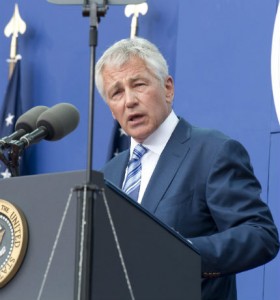 In 2007, Senator Chuck Hagel then and later on a Defense Secretary, said: “People say that we do not make war for oil. Of course, that war is for oil. They talk about the national interest of America. What the hell do you think they talk about? We’re not there for the figs.”
In 2007, Senator Chuck Hagel then and later on a Defense Secretary, said: “People say that we do not make war for oil. Of course, that war is for oil. They talk about the national interest of America. What the hell do you think they talk about? We’re not there for the figs.”
Also in 2007, former Federal Reserve Chairman, Alan Greenspan, considered once  the most powerful banker in the world, served during the mandates of four US presidents, wrote the year after he retired from office: “I am saddened that it is politically inconvenient to acknowledge what everyone knows: The Iraq war was mainly about oil.” Greenspan makes this recognition after the death toll from the war in Iraq reached 1.2 million people.
the most powerful banker in the world, served during the mandates of four US presidents, wrote the year after he retired from office: “I am saddened that it is politically inconvenient to acknowledge what everyone knows: The Iraq war was mainly about oil.” Greenspan makes this recognition after the death toll from the war in Iraq reached 1.2 million people.
In terms of war, retired General and commander of CENTCOM, John Abizaid said: “Of course, you are talking about oil, especially oil, and we can not deny it.”
The causes of the war in 2003 are the same as those already back in 1990.
Two weeks after the Iraqi invasion of Kuwait on August 15, 1990, US President George Bush Sr points as a justification for the war “our jobs, our way of life, our own freedom and the freedom of friendly countries around the world will suffer if control of the world’s largest oil reserves fall into the hands of Saddam Hussein.”
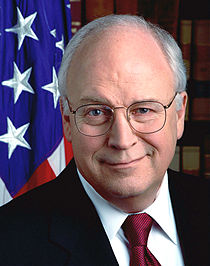 In 1992, then Secretary of Defense, Dick Cheney said that “after he (Saddam) acquired Kuwait and deployed all its military forces …” Saddam was “in a position to dictate the future of global energy policy, and this enabled him to suffocate our economy.”
In 1992, then Secretary of Defense, Dick Cheney said that “after he (Saddam) acquired Kuwait and deployed all its military forces …” Saddam was “in a position to dictate the future of global energy policy, and this enabled him to suffocate our economy.”
In 2003, when US forces occupied Iraq, the journalist of The New York Times, Thomas Friedman wrote: ” … this war is the most important liberal and revolutionary project for the construction of American democracy since the Marshall Plan.” According to the journalist, the war in Iraq was “one of the noblest things this country [USA – author’s note] ever tried abroad and this is a moral and strategic imperative …”
Friedman wrote: ” … this war is the most important liberal and revolutionary project for the construction of American democracy since the Marshall Plan.” According to the journalist, the war in Iraq was “one of the noblest things this country [USA – author’s note] ever tried abroad and this is a moral and strategic imperative …”
And not a word about 112 billion barrels of oil reserves. It’s about $100 billion net income per year, while Exxon has an annual profit of $25 billion.
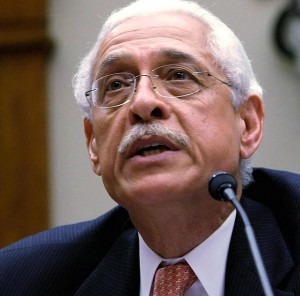 Unlike the media, financial analysts on Wall Street are candid: “Think of Iraq as a virgin territory … Iraq became the most sought after real estate on earth … This is bigger than anything in which Exxon is involved at present,” Fadel Gheit, executive director and senior analyst at Oppenheimer & Company said about the enterprise. According to experts, actually we are talking about $100 billion net profit a year, while Exxon has an annual profit of $25 billion.
Unlike the media, financial analysts on Wall Street are candid: “Think of Iraq as a virgin territory … Iraq became the most sought after real estate on earth … This is bigger than anything in which Exxon is involved at present,” Fadel Gheit, executive director and senior analyst at Oppenheimer & Company said about the enterprise. According to experts, actually we are talking about $100 billion net profit a year, while Exxon has an annual profit of $25 billion.
“This is a future superstar … Everyone wants to be there … Think of Iraq as a military base with a very large oil reserve underground … You can not wish for better than this,” continues Gheit. (Excerpt from the book by Linda McQuaig, ‘War, the Big Oil and Fight for the Planet: It’s the Crude, Dude’, p. 76-78).
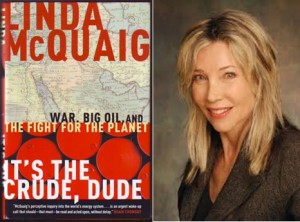 According Gheits, there is another factor that makes Iraq particularly attractive: its military vulnerability. Russia also has the resources to satisfy the vast majority of the oil industry as the country’s potential in oil production significantly exceeds proven reserves. The point is that Russia is a nuclear power. Even in 2003, it is able to destroy with a nuclear weapon any potential aggressor. As Gheits states, “we can not just go and occupy … [Russian] oil fields. This is a different ball.” While Iraq was the ideal target: a weak country without any weapons of mass destruction. Otherwise, the US hardly would have taken the intervention. (Excerpt from the book by Linda McQuaig, ‘War, the Big Oil and the Fight for the Planet: It’s the Crude, Dude’, p. 78).
According Gheits, there is another factor that makes Iraq particularly attractive: its military vulnerability. Russia also has the resources to satisfy the vast majority of the oil industry as the country’s potential in oil production significantly exceeds proven reserves. The point is that Russia is a nuclear power. Even in 2003, it is able to destroy with a nuclear weapon any potential aggressor. As Gheits states, “we can not just go and occupy … [Russian] oil fields. This is a different ball.” While Iraq was the ideal target: a weak country without any weapons of mass destruction. Otherwise, the US hardly would have taken the intervention. (Excerpt from the book by Linda McQuaig, ‘War, the Big Oil and the Fight for the Planet: It’s the Crude, Dude’, p. 78).
According to founder and CEO of Global Policy Forum, Dr. James A. Paul “the oil of Iraq is the cheapest for manufacturing in the world, at a price of only $1 a barrel. Giant ‘rent’ of Iraqi oil during decades of production can provide gains to companies in the $4-5 trillion … Assuming fifty years of production and 40% royalty fees, Iraq could receive annual profit of the five largest companies, even in the successful 2003.”
Since the Sykes-Pico agreement, behind the interventions (obvious or hidden) of the West in the Middle East, is oil.
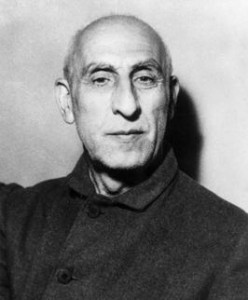 We should not forget the event from 1953, when Britain and the United States organized a coup in Iran, removing from office the legitimate Prime Minister of the country, Mohammed Mosaddegh, which is famous for the nationalization of the Iranian oil industry, controlled by the British since 1913. Mosaddegh is a defender of secular democracy and state sovereignty.
We should not forget the event from 1953, when Britain and the United States organized a coup in Iran, removing from office the legitimate Prime Minister of the country, Mohammed Mosaddegh, which is famous for the nationalization of the Iranian oil industry, controlled by the British since 1913. Mosaddegh is a defender of secular democracy and state sovereignty.
After the removal of Mosaddegh, the pro-Western monarch of Iran, Shah Mohammed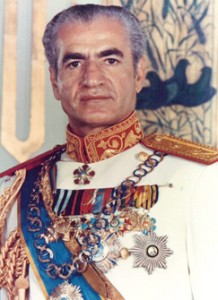 Reza Pahlavi again restores the status quo of the times before the nationalization. Over the years, popular discontent against the pro-Western monarch grows to reach the revolution in 1979, when he was forced to abdicate. Thus, Iran turned from a secular state into a country of Sharia (Islamic law).
Reza Pahlavi again restores the status quo of the times before the nationalization. Over the years, popular discontent against the pro-Western monarch grows to reach the revolution in 1979, when he was forced to abdicate. Thus, Iran turned from a secular state into a country of Sharia (Islamic law).
In February 2016, The Wall Street Journal quoted the CEO of Iranian Central Oil Fields Company, Salbali Karimi, according to whom “oil from the central regions of the country can be produced purely for $1 to $1.50 a barrel.”
It is not accidental that after 9/11, Iran was included in the US list for “democratization,” according to General Clark, who admits that the US aims at a regime change in Iran, for which purpose “we asked Congress to allocate $75 million to do that, and we support terrorist groups who obviously infiltrated into Iraq-Iran.”
And if military intervention against Iran has not taken place, it is because the vast majority of the generals in the US are able to reflect soberly and objectively on the deciding factors as territory (4 times greater than that of Iraq), population (2.5 times more numerous), economics, technology, diverse terrain, training and armament of Iran’s security forces, resources of the country for a long war, and of course, the attitudes of the population. This indicates that in case of a military intervention against Iran, the losses in the US will exceed the benefits. As for the attempts of Iran to become a nuclear power, they are the result of the instinct for self-preservation and awareness of the lack of effective international instruments which could influence the US and NATO in case they decide to attack one or another sovereign state. Iran gave up its nuclear program when it received guarantees of protection from Russia and China.
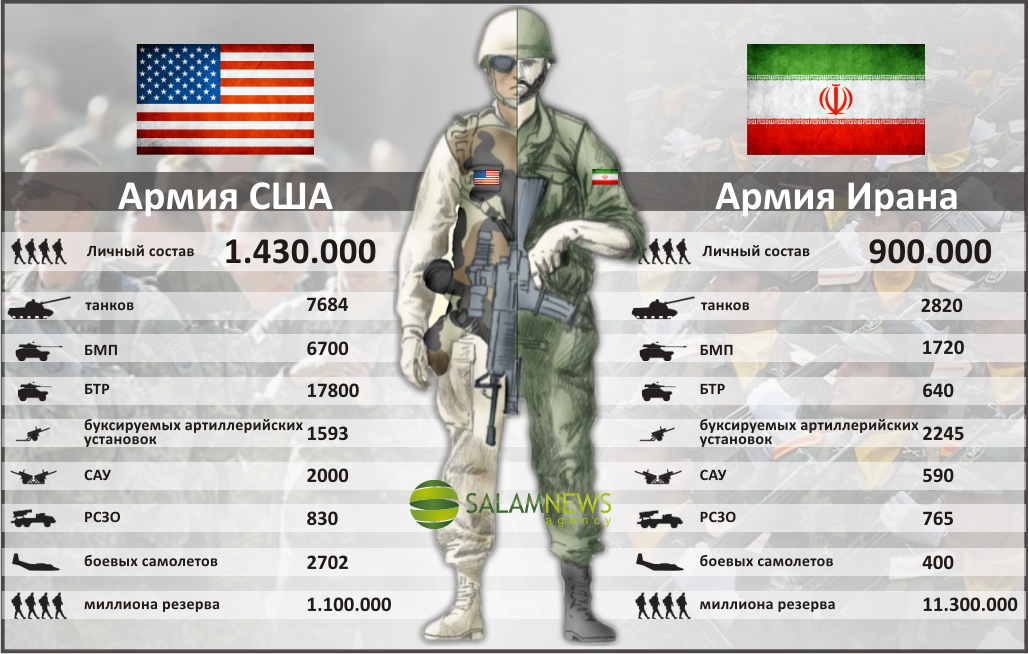
In April 2009, three months after her appointment to the post of US Secretary of State and two years before the civil war in Libya, Hillary Clinton in an interview with CNN said: “The people we are fighting today we financed 20 years ago. We did it because we were ‘locked’ in the struggle with the Soviet Union. They invaded Afghanistan and we did not want them to control Central Asia … And President Reagan was together with Congress, led by Democrats who said “you know what, it sounds like a pretty good idea, let’s get an understanding with the ISI (Inter-Services Intelligence) [inter-agency intelligence of Pakistan – author’s note] and the Pakistani military and let’s hire these Mujahedin. And that is great. Take a little from Saudi Arabia and other places, bring in the Wahhabi side of Islam, so that we can beat the Soviet Union. And guess what? They went. They lost billions of dollars and this led to the collapse of the Soviet Union. So, there is a very strong argument that it was not a bad investment to finish the Soviet Union, but let’s be careful what we sowed because it will reap.”
Yes, the holy Apostle Paul says that “whatsoever a man soweth, that shall he also reap” (Gal. 6: 7). And the words of Ecclesiastes are: “Whatever it was, it would be, and whatever was done, it will be done; there is nothing new under the sun” (Eccl. 1: 9). Today, we observe déjà vu from 1979-1989 in Afghanistan decades ago, and today the US again seeks to isolate and restrict resurgent Russia, creating conditions for its disintegration. To achieve this goal, Washington is ready to do the same temporary alliance with ‘allies’ who subsequently go beyond its control.
In October 2009, in her interview for CBS, recognizing that the US is among the founders of the problem today, Hillary Clinton confirms and elaborates her position, quoted: “Back in the ’80s, it seemed a great idea to encourage – train and equip – Taliban jihadists mujaheddin against the Soviet Union, which had invaded Afghanistan. And with our help and support from Pakistan, this group, including Bin Laden at the time, defeated the Soviet Union … when they had fulfilled their main mission, expulsion of the Soviet Union from Afghanistan, we retired. And we left the problems of well-armed fundamentalists, ideological and religious groups, seasoned in fighting Afghans and Pakistanis.”

Similar thoughts Clinton expresses for a third time in 2012, when Gaddafi was already dead, Libya is a failed state and the civil war in Syria rages. In an interview with FOX News, US Secretary of State, Hillary Clinton says: “When the Soviet Union invaded Afghanistan, we had this brilliant idea that we will go to Pakistan and create a force of Mujahideen, equip them with the Stinger missiles and everything else, and will pursue the Soviets in Afghanistan. We succeeded. We said ‘great’ and we left Afghanistan … leaving these fanatics trained in Afghanistan and Pakistan well-armed and creating a mess, which we then did not admit. We were just so happy to see the collapse of the Soviet Union … Now, looking back, the people against whom we fight today, we supported against the Soviets.”
Apparently, the White House, presented by the Secretary of State, is aware of the consequences for the world today by the US policy three decades ago, which thesis within a few years Mrs. Clinton repeats three times. In light of these revelations, we are now witnessing the same ‘tinkering’ with jihadists who were then defined as ‘freedom fighters’, and now as ‘moderate opposition’. This is not a random error but a purposeful foreign policy. As Hillary Clinton stressed, the jihadists are not a bad investment, especially when it comes to the old enemy, Russia.
This time, however, the target has become not so much Russia, but the European Union. Instead of Russia’s disintegration about which Zbigniew Brzezinski and George Friedman talk for years, we would be witnessing if not the collapse, the reforming of the EU, possibly NATO, precisely because “whatsoever a man soweth, that shall he also reap.”
To be continued…






Great series. Looking forward to the others.
Good historical background. Zapryanov does a fine job of establishing continuous, logical threads that fit smaller patterns into larger ones.